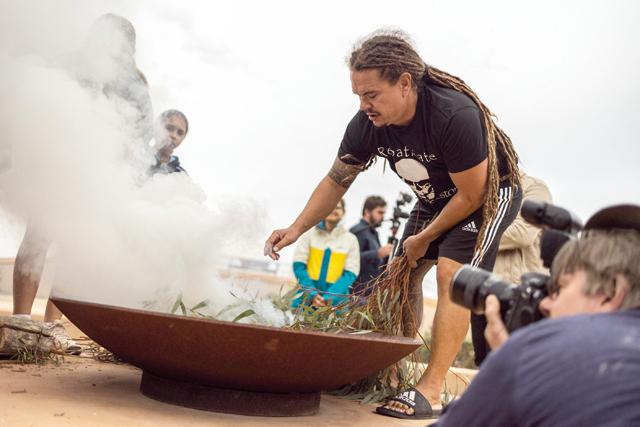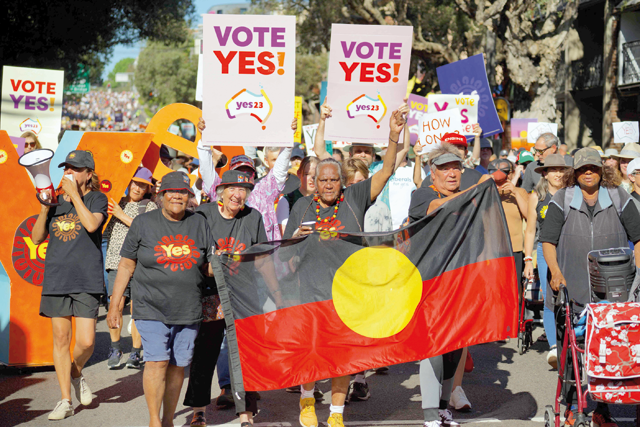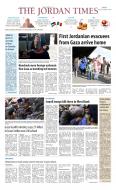You are here
Australia to rebury ancient Indigenous Mungo remains
By AFP - Apr 06,2022 - Last updated at Apr 06,2022

A handout photo taken and received on Wednesday from the New South Wales (NSW) Department of Environment shows Robert Kelly conducting a traditional Aboriginal smoking ceremony in the Mungo National Park (AFP photo)
SYDNEY — Australia’s oldest human remains, dating back at least 40,000 years, will be reburied near the Outback site at Mungo Lakes where they were first uncovered, the Australian government announced on Wednesday.
The ancestral remains of 108 people, including the most famous bones known as the Mungo Man and Lady, will be interred near their original resting place in the Mungo National Park — about 11 hours drive west of Sydney, NSW Environment Minister James Griffin said.
“While the discovery of Mungo Man and Mungo Lady helped scientists establish that Aboriginal people have been in Australia for more than 42,000 years, it’s time to let their spirits rest in peace,” Griffin said.
The discoveries at Lake Mungo and Willandra Lakes between 1960 and 1980 redefined the anthropological understanding of Australia, pushing back the estimates of when humans first arrived on the continent by tens of thousands of years.
Mungo Lady is still among the earliest evidence of cremation in the world.
Further research of rock shelters in the Northern Territory has since extended evidence of Indigenous Australians, believed to be the world’s oldest continuous culture, to at least 65,000 years.
After their excavation, the remains were removed from the site and taken away for study without permission from traditional owners.
Decades of campaigning by Indigenous elders led to the return of the remains to the World Heritage site at Mungo National Park in 2017.
Patsy Winch — chair of the Aboriginal Advisory Group representing Paakantji, MutthiMutthi and Ngiyampaa people from the area — welcomed the decision.
“Finally, after all that time has passed, the voices of the elders have been heard, and I am thankful that these ancestral remains will finally be laid to rest the traditional way, in country,” Winch said in a statement.
The government said the decision to rebury the bones was decided after an “extensive community consultation” and will be carried out in accordance with the wishes of the traditional owners of the land.
Related Articles
SYDNEY — Australians rallied around the country on Sunday to fight for a landmark Indigenous rights reform that is bleeding support in the p
SYDNEY — Tens of thousands of Australians defied government calls to stay at home on Saturday by spilling onto the streets for Black Lives M
SYDNEY — Australians have roundly rejected greater rights for Indigenous citizens, scuppering plans to amend the country’s 122-year-old cons
Opinion
Nov 03, 2023
Nov 03, 2023
Nov 01, 2023
- Popular
- Rated
- Commented
Nov 03, 2023
Nov 03, 2023
Oct 31, 2023
Nov 03, 2023
Newsletter
Get top stories and blog posts emailed to you each day.















